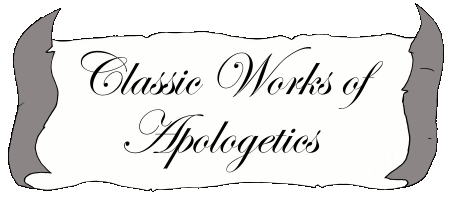

What evidence is there, outside the Bible, that confirms the historical accounts of the Bible? This webpage has the answers!
"The External Evidences of the Authenticity of the writing, considered as a narrative of facts, are too numerous to mention. They are found in allusions to the same facts, or to incidents obviously connected with them, by contemporary authors; in customs, traditions, and institutions, which have come down to later times, and the origin of which cannot be accounted for, except on the supposition that the reported events actually took place; in coins, medals, and inscriptions, belonging to the same age, or one immediately subsequent, and connected by equally close relations with the alleged facts; in the notoriety which such incidents must have obtained, the interest which must have been felt in them, and the consequent probability that falsifications and forgeries respecting them would never have been attempted, or would have been detected and disproved at the time."--Francis Bowen. A Treatise on Logic; or, The laws of pure thought; comprising both the Aristotelic and Hamiltonian analyses of logical forms, and some chapters of applied logic. Second edition. Cambridge [Mass.] Sever and Francis, 1864), pp. 433-435. Available online here.
Anglican bishop of North Sydney, Australia.
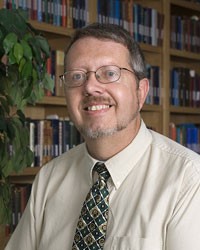
Distinguished Professor of the New Testament at Denver Seminary in Colorado. Read about Professor Blomberg here.

Biblical scholar. Learn more about Bruce here and see more about him on this page about archaeologists.
New Testament scholar and Anglican Rector. He was Principal of Wycliffe Hall Oxford from 1989 to 1995. Read more about France here.

Modern apologist/scholar. Read more about Habermas here.
Introduction: While Christian beliefs are presumably much more widely known, especially in the Western world, some adherents to the major non-Christian religions also make claims that some of their historical rabbis, prophets, gurus or 'messiahs' rose from the dead. Judging from the relevant religious literature, it appears that such non-Christian claims are often ignored, perhaps because there is little awareness of them. Even if the existence of such beliefs is recognized, almost never is there any in-depth answer to the question of whether such claims could possibly be grounded in supernatural events of history.
This essay is an examination of several sample resurrection-claims in non-Christian religions from ancient to modern times. The primary emphasis will be placed on whether these claims can themselves be said to be historically based on supernatural occurrences. To pursue this goal, historical and other critical criteria will be applied to these religious beliefs. Lastly, a few comments will be addressed to the issue of whether these resurrection claims provide any apologetic basis for non-Christian belief systems.

Apologist. Read more about Houtteville here. (In French)
Avery Robert Dulles, A History of Apologetics, Ignatius Press, 2005: As the eighteenth century progress, French apologists, like their colleagues in England, showed an increasing tendency to shift their ground from philosophical reasoning to historical evidence. This development is already discernible in the work of the Oratorian Alexandre Claude Franois Houtteville (or Houteville; 1686-1742), who issued in 1722 The Christian Religion Proved by Facts. Book 1, the most original part of this work, demonstrates that the miraculous events narrated in the Gospels are worthy of acceptance according to the general laws of historical evidence. In the first place, he observes, since miracles are not self-contradictory, they are worthy of serious investigation (chapter 6). Further, the Gospel miracles are vouched for by contemporary eyewitnesses (chapter 7) who were sincere and truthful (chapter 8). The Gospel facts, moreover, were public and of general interest (chapter 9). They stand at the basis of certain later facts, such as the willingness of the early Christians to die for their faith (chapter 10). The miracles of Jesus were admitted by the Jews and pagans of the first Christian centuries, although it would have been to the interest of these adversaries to deny them (chapter 11). Finally, the miracle stories have been handed down without corruption (chapter 12). In Book 2 Houtteville sets forth the conventional arguments from Old Testament prophecies of Christ, and in Book 3 he replies to fourteen major objections raised by the deists to the veracity of the Gospels. At the end he appends a dissertation on the systems that the unbelievers propose as alternatives to Christianity.
Houtteville's work is clear and well ordered. His efforts to apply exact historical method to the Gospels represented a real advance, but the undeveloped state of historical science in his day has, of course, made his work quite obsolete by modern standards. (Footnote: For a good analysis of this work see Monod, De Pascal a Chateaubriand, 219-28).

English theologian. (TM): Nathaniel Lardner (1684-1768) was a dissenting minister who devoted his life to producing the apologetic masterpiece of the 18th century, the multi-volume Credibility of the Gospel History.
Lardner's christological views were not orthodox, though he stated publically that he was not an Arian. These issues, however, do not affect his historical work. Richard Watson included works by Lardner and several other dissenters in his Collection of Theological Tracts, (2nd edition 1791; see especially the Preface, p. xix).
Read more about Lardner here.
Thomas Chalmers, Evidence and Authority of the Christian Revelation: We offer no reflection against the assiduous Lardner, who, in his credibility of the Gospel history, presents us with a collection of testimonies which should make every Christian proud of his religion. In his evidence for the authenticity of the different pieces which make up the New Testament, he begins with the oldest of the fathers, some of whom were the intimate companions of the original writers. According to our view of the matter, he should have dated the commencement of his argument from a higher point, and begun with the testimonies of these original writers to one another. In the second Epistle of Peter, there is a distinct reference made to the writings of Paul; and in the Acts of the Apostles, there is a reference made to one of the four Gospels. Had Peter, instead of being an apostle, ranked only with the fathers of the church, and had his epistle not been admitted into the canon of scripture, this testimony of his would have had a place in the catalogue, and been counted peculiarly valuable, both for its precision and its antiquity. There is certainly nothing in the estimation he enjoyed, or in the circumstances of his epistle being bound up with the other books of the New Testament, which ought to impair the credit of his testimony. But in effect, his testimony does make a weaker impression on the mind, than a similar testimony from Barnabas, or Clement, or Polycarp. It certainly ought not to do it, and there is a delusion in the preference that is thus given to the latter writers. It is, in fact, another example of the principle which we have been so often insisting upon. What profane authors are in reference to Christian authors at large, the fathers of the church are in reference to the original writers of the New Testament. In contradiction to every approved principle, we prefer the distant and later testimony, to the testimony of writers, who carry as much evidence and legitimate authority along with them, and who only differ from others in being nearer the original sources of information. We neglect and undervalue the evidence which the New Testament itself furnishes, and rest the whole of the argument upon the external and superinduced testimony of subsequent authors.
French theologian. Read more about Le Clerc here.
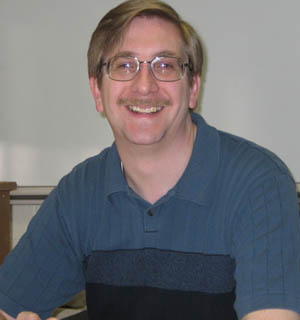
Professor and Chairman (2005-2009), Department of Philosophy, Western Michigan University. Curator, Library of Historical Apologetics. Learn about Dr. McGrew here, here, and here.
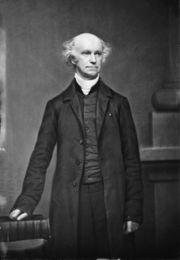
Episcopalian bishop and president of Kenyon College.
It may be said, with some appearance of a plausible objection to the testimony hitherto produced, that it is all derived, either from the devoted friends of the gospel, or else from those who professed to be its disciples. Is there no testimony from enemies? The books of the New Testament were widely circulated; christian advocates, in their controversies with the Heathen, freely appealed to them; Heathens, in their works of attack and defence, must have spoken of them. In what light did they regard them? Did they ascribe them to their reputed authors, or question their authenticity? Now we do not grant that the testimony already produced is justly liable to the least disparagement on account of its having been derived exclusively from the friends of Christ. That certain ancients believed the facts contained in Caesar's Commentaries has never been supposed to diminish the value of their testimony to the authenticity of that work. We will take occasion, by and by, to show that the very fact that an early witness to the New Testament history was not an enemy, but a friend, of the gospel, and had become a friend from having been once an enemy, is just the ingredient in his testimony that gives it peculiar conclusiveness. Still, however, we are under no temptation to undervalue the importance of an appeal to the opinions of adversaries. Let us inquire of enemies as well as friends -- and first of Julian.
Julian, the emperor, united intelligence, learning, and power, with a persecuting zeal, in a resolute effort to root out christianity. In the year 361, he composed a work against its claims. We may be well assured that if any thing could have been said against the authenticity of its books, he would have used it. His work is not extant; but from long extracts, found in the answer by Cyril, a few tears after, as well as from the statements of his opinions and arguments by this writer, it is unquestionable that Julian bore witness to the authenticity of the four Gospels and of the Acts of the Apostles. He concedes, and argues from, their early date; quotes them by name as the genuine works of their reputed authors; proceeds upon the supposition, as a thing undeniable, that they were the only historical books which Christians received as canonical -- the only authentic narratives of Christ and his apostles, and of the doctrine they delivered. He has also quoted, or plainly referred to, the Epistles to the Romans, Corinthians, and Galatians, and nowhere insinuates that the authenticity of any portion of the New Testament could reasonably be questioned.* Let us ascend a little higher.
Hierocles, president of Bithynia, and a learned man, of about the year 303, united, with a cruel persecution of Christians, the publication of a book against christianity, in which, instead of issuing even the least suspicion that the New Testament was not written by those to whom its several parts were ascribed, he confines his effort to the hunt of internal flaws and contradictions. Besides this tacit acknowledgment, his work, or the extracts of it that remain, refer to, at least, six out of the eight writers of the books of the New Testament.* Let us ascend still higher.
Porphyry, universally allowed to have been the most severe and formidable adversary, in all primitive antiquity, wrote, about the year 270, a work against Christianity. It is evident that he was well acquainted with the New Testament. In the little that has been preserved of his writings, there are plain references to the Gospels of Matthew, Mark, and John, the Acts of the Apostles, and the Epistle to the Galatians.* Speaking of Christians, he calls Matthew their evangelist. "He possessed every advantage which natural abilities or political situation could afford, to discover whether the New Testament was a genuine work of the apostles and evangelists, or whether it was imposed upon the world after the decease of its pretended authors. But no trace of this suspicion is any where to be found; nor did it ever occur to Porphyry to suppose that it was spurious."** How well this ingenious writer understood the value of an argument against the authenticity of a book of scripture, and how greedily he would have enlisted it in his war against christianity, could he have found such a weapon, is evident from his well known effort to escape the prophetic inspiration of the book of Daniel, by denying that it was written in the times of that prophet. We may ascend still higher.
Celsus, esteemed a man of learning among the ancients, and a wonderful philosopher among modern infidels, wrote a laboured argument against the Christians. He flourished in the year 176, or about seventy-six years after the death of St. John. None can accuse him of a want of zeal to ruin Christianity. None can complain against his testimony, as deficient in antiquity. An industrious, ingenious, learned, adversary of that age, must have known whatever was suspicious in the authorship of the New Testament writings. His book entitled "The True Word," is unhappily lost, but in the answer, composed by Origen, the extracts from it are so large that it is difficult to find of any ancient book, not extant, more extensive remains. The author quotes, from the Gospels, such a variety of particulars, even in these fragments, that the enumeration would prove almost an abridgement of the Gospel narrative.* Origen has noticed in them about eighty quotations from the books of the New Testament, or references to them. Among these there is abundant evidence that Celsus was acquainted with the Gospels of Matthew, Luke and John. Several of Paul's Epistles are alluded to. His whole argument proceeds upon the concession that the Christian scriptures were the works of the authors to whom they were ascribed. Such a thing as a suspicion, to the contrary, is not breathed; and yet no man ever wrote against Christianity with greater virulence. Hence it appears, "by the testimony of one of the most malicious adversaries the Christian religion ever had, and who was also a man of considerable parts and learning, that the writings of the evangelists were extant in his time, which was the next century to that in which the apostles lived; and that those accounts were written by Christ's own disciples, and, consequently, in the very age in which the facts there related, were done, and when, therefore, it would have been the easiest thing in the world to have convicted them of falsehood, if they had not been true."** "Who can forbear (says the devout Doddridge) adoring the depth of divine wisdom, in laying up such a firm foundation of our faith in the gospel history, in the writings of one who was so inveterate an enemy to it, and so indefatigable in his attempts to overthrow it."*** Who, I will add, can help the acknowledgment that in Celsus, Porphyry, Hierocles, and Julian, all of them learned controversialists, as well as devoted opponents and persecutors of Christians, extending their testimony, from the seventieth year after the last of the apostles, to the year of our Lord 361 -- every reasonable demand for the testimony of enemies is fully met, and a gracious Providence has perfected the external evidence for the authenticity of the New Testament?
(TM): McIlvaine explains that he composed these lectures on the occasion of being invited to give lectures on apologetics in New York. Like Paley and Chalmers, McIlvaine openly acknowledges his debt to Lardner; the sixth lecture gives an excellent thumbnail sketch of some of Lardner's research. Though McIlvaine did not disparage the internal evidences as Chalmers had, his work focuses exclusively on the 'external division' of the evidences--the historical evidence for the authenticity and credibility of the New Testament documents, the evidence for the resurrection, the argument from prophecy, the argument from the propagation of Christianity, and the evidence of the fruits of Christianity in the lives of its genuine disciples.
McIlvaine's work is notable not only for the thoughtful arrangement of the divisions of the argument but also for his earnest discussion of the duty of all Christians who have the means to study the evidence for their faith and the spirit in which that study should be undertaken.
Bishop M'Ilvaine's Lectures. Review of The Evidences of Christianity from The Princeton Review, January 1833, pp. 76-100. Text-searchable. This review also discusses the best apologetics literature of the period.
... "Dr. M'Ilvaine has in these lectures displayed an ingenuity, an erudition, and an eloquence, which cannot but give him a high standing with discerning and impartial judges, among American authors. Before this, the public was well acquainted with Dr. M'Ilvaine as an eloquent and evangelical preacher, but we are inclined to think that few of his friends, even of those who were best acquainted with him, were prepared to expect from his pen a work characterized as this is by cogent and ingenious reasoning. The occasion on which these lectures were delivered, and the character of the audience to whom they were originally addressed, required, that they should be in a popular style. They were addressed to several hundred young men of the city of New York, of various attainments and pursuits; and one can scarcely conceive of a more important field of usefulness for a man capable of improving it to the best advantage. We are of opinion, after reading these discourses, that a better selection of a lecturer, for such a purpose, could not have been made: delivered with the usual commanding and pleasing eloquence of the author, it is not surprising, that they were heard with fixed and continued attention, from first to last. It is, however, often the case, that discourses delivered with every advantage of voice and action, produce an interest and impression, which are far from being realized when the same discourses are read in print; and we confess that when we heard of the success of the lecturer in fixing at tention, and creating a feeling of deep interest in his youthful audience, we did apprehend, that we should experience some disappointment in the perusal of these lectures in the closet. But this is far from being the fact. For while there is a copious ness in the style, and occasionally a repetition of the same ideas and reasonings, which were well suited to discourses actually delivered to an audience of young men; we have experienced no disappointment on the whole; but, on the contrary, our estimation of the talents and learning of the author has been raised many degrees. And after all that has been written on the evidences of divine revelation, we do not know a book better suited to the object for which these lectures were prepared, than the volume now presented to the public. It is admirably adapted to the instruction and conviction of intelligent and ingenuous youth; and might with great advantage be made a text book in our colleges, and other seminaries of learning. The only defect which it has in reference to such an object, is, that it treats only of the external evidences of revelation, whereas, a manual for colleges should comprehend the internal evidences also. But the same objection may be made to Paley and to Chalmers. Their treatises are entirely confined to a consideration of the external evidences.
"It may appear somewhat astonishing that Dr. M'Ilvaine was able, in a state of health not the most perfect, to compose, in so short a time, discourses of so much real excellence, and in which so few faults are to be found. But this will appear the less surprising, when it is considered, that as chaplain to the national military academy at West Point, it became his duty to lecture on this subject; and while at that station, he had much opportunity of being intimately acquainted with the reasonings and objections of ingenious infidels; for when he commenced his duties there, it is understood, that among the officers and students, deistical sentiments were completely predominant; so that the inculcation of the truth of divine revelation produced among some of the gentlemen of the institution a violent re-action, which brought the young chaplain into frequent and severe conflict with men who had taken much pains to fortify their minds in the firm adherence to the deistical system. This rendered it necessary that he should study the evidences of Christianity thoroughly; and it also made him fully acquainted with the grounds on which they rested their cause. It was by this means, that Dr. M'Ilvaine was prepared, at so short a notice, to compose lectures which possess so much sterling merit. And now, when infidelity is again attempting to raise her head in this land, and especially in the city of New York, it is exceedingly gratifying to the lovers of truth, to find, that God, in his providence, has been training some men for the contest; and has, in this instance, brought upon the field one who has proved himself capable of vindicating the cause of Christianity with a force and eloquence, which, we are sure, the most powerful of its enemies can never withstand.
"It has also been a source of pleasing reflection to us, that the University of the city of New York, just commencing its career, and rising into notice, has assumed so bold a stand in favour of divine revelation; and among her earliest efforts has produced a volume, which, while it is eminently adapted to instruct the youth of that populous and rapidly increasing emporium, is, by its publication, likely to become useful to multitudes of others, both in the present and future generations. We sincerely hope that the directors and professors of this rising institution will proceed on the principles with which they have commenced. May they never be ashamed to avow that their University, is, in its constitution, essentially a Christian Institution, and "set for the defence of the Gospel." We hope, also, that what has been reported to.us as their purpose, namely, making the Bible a regular classic, will be carried into complete effect. Too long have professed Christians cast contempt and dishonour on the volume of Inspiration, by excluding it from the schnols of learning, and by exalting heathen authors above the writings of Moses and the prophets and apostles. The Bible presents the most interesting and fruitful field for the studies of our youth. Its history and biography-its antiquities and religious institutions-its poetry and wise moral maxims-its prophecies and types-and, finally, its sublime doctrines and salutary precepts, open to the ingenuous student, a rich mine of instruction, compared with which all the treasures of heathen antiquity are meager. If we are indeed Christians, let us pay due honour to our Master, in all our institutions of learning, and no longer be moved by the ridicule and scorn of infidels, whose object ever has been to banish the Bible, first from our schools, and next from the world. Providence, we believe, will cause those literary institutions to prosper, in which revealed religion is defended, and its principles inculcated. The outcry of sectarism is unworthy of our notice. Christianity is no sect. It is the religion of Heaven; the greatest blessing which the world has received; the light of life, intended to show erring men the way to heaven; and shall we put this glorious light under a bushel? We confess, that ever since we observed the prominence given to religion in this University, our hearts have been drawn towards it, and we can Bishop M'Ilvaine's Lectures. not but pray for its prosperity. If there are others, who dislike the Bible, and every thing which savours of piety, let them institute semiharies of learning of their own, into which the sun of righteousness shall never dart one cheering ray; where the Bible shall be as little known as the Koran, and within which no messenger of heaven shall ever be permitted to set his foot. Let infidel men lavish their treasures in founding such institutions. Christians need not envy them, or regret that they have no part nor lot in them. The time will come when God will vindicate the honour of his own word, and of his own servants."

English divine and philosopher. Learn more about Paley here and here.
Translator and humanist scholar.
Church of England clergyman and author. Fellow of the Royal Society, and of the Society of Antiquarians.
Protestant apologists. Website here.
Professor of New Testament Studies at Western Theological Seminary, in Holland, Michigan. Learn more about Van Voorst here.
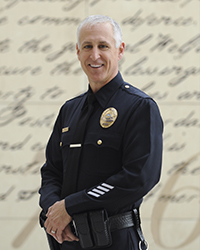
Los Angeles County Homicide Detective, author, former atheist. Read about Wallace at Stand to Reason.

Modern Biblical scholar. Learn more about Yamauchi here and see more about him on this page about archaeologists.